Distinguished Alumnus/a Award
Recognizes an alum whose professional achievements and cumulative contributions have brought personal distinction, enhanced the general health and well-being of the public through professional practice, research or public policy, and brought honor to their alma mater.
2025 Recipient: Christopher Flowers, MD, Res. ’00, MS ’02, Fel. ’02, Fel. ’03
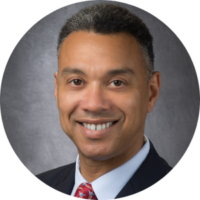 We honor Dr. Christopher Flowers for his outstanding contributions to oncology, particularly in lymphoma research, clinical trials and addressing health disparities. As the chair of the Department of Lymphoma and Myeloma at MD Anderson Cancer Center, his work has reshaped therapeutic approaches to lymphoma, focusing on personalized treatments that improve patient outcomes. His groundbreaking research on racial and socioeconomic disparities in cancer care has led to better understanding and interventions for underserved populations. Dr. Flowers has also played a key role in mentoring the next generation of oncologists and researchers, emphasizing diversity and inclusion within the field. Through his leadership in clinical trials and health equity initiatives, Dr. Flowers has significantly advanced both cancer research and healthcare policy.
We honor Dr. Christopher Flowers for his outstanding contributions to oncology, particularly in lymphoma research, clinical trials and addressing health disparities. As the chair of the Department of Lymphoma and Myeloma at MD Anderson Cancer Center, his work has reshaped therapeutic approaches to lymphoma, focusing on personalized treatments that improve patient outcomes. His groundbreaking research on racial and socioeconomic disparities in cancer care has led to better understanding and interventions for underserved populations. Dr. Flowers has also played a key role in mentoring the next generation of oncologists and researchers, emphasizing diversity and inclusion within the field. Through his leadership in clinical trials and health equity initiatives, Dr. Flowers has significantly advanced both cancer research and healthcare policy.


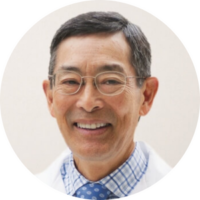 We honor Dr. Peter Hashisaki for his profound impact as an infectious disease physician, improving patient care and mentoring colleagues and medical students. His unwavering commitment to underserved populations is particularly evident in his long-standing efforts in Malawi, where he provides crucial medical care, enhances local staff training, and introduces innovative resources like ultrasound devices to improve patient care. Dr. Hashisaki’s humility, generosity, and selflessness inspire everyone around him, making him a true humanitarian who continually strives to better the lives of those in need. His lifelong contributions to global health exemplify the highest standards of service and compassion.
We honor Dr. Peter Hashisaki for his profound impact as an infectious disease physician, improving patient care and mentoring colleagues and medical students. His unwavering commitment to underserved populations is particularly evident in his long-standing efforts in Malawi, where he provides crucial medical care, enhances local staff training, and introduces innovative resources like ultrasound devices to improve patient care. Dr. Hashisaki’s humility, generosity, and selflessness inspire everyone around him, making him a true humanitarian who continually strives to better the lives of those in need. His lifelong contributions to global health exemplify the highest standards of service and compassion.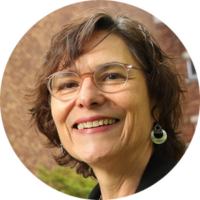 We honor Dr. Ramoncita “Raye” Maestas for her exceptional dedication to the University of Washington School of Medicine and to underserved communities. As a compassionate teacher, leader and clinician, Dr. Maestas made significant contributions to medical education and community health. With a commitment to equity, service learning and student advocacy, Dr. Maestas was instrumental in fostering an inclusive and supportive environment for all students. Through her work establishing the family medicine residency program at SeaMar Community Health Center, and teaching residents at Providence Hospital, Dr. Maestas transformed care for underserved populations in Seattle. Her impact continues to inspire colleagues and students alike.
We honor Dr. Ramoncita “Raye” Maestas for her exceptional dedication to the University of Washington School of Medicine and to underserved communities. As a compassionate teacher, leader and clinician, Dr. Maestas made significant contributions to medical education and community health. With a commitment to equity, service learning and student advocacy, Dr. Maestas was instrumental in fostering an inclusive and supportive environment for all students. Through her work establishing the family medicine residency program at SeaMar Community Health Center, and teaching residents at Providence Hospital, Dr. Maestas transformed care for underserved populations in Seattle. Her impact continues to inspire colleagues and students alike.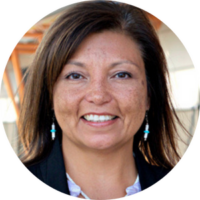 We honor Dr. LeeAnna Muzquiz, a dedicated physician and educator, for her lasting contributions to the University of Washington School of Medicine and her community. As the associate dean for admissions, she has championed diversity and equity, ensuring that the medical school’s student body better represents the region it serves. Dr. Muzquiz has also been instrumental in mentoring students, developing innovative pathways for students interested in serving Indigenous communities and fostering an inclusive ecosystem that supports all stages of medical careers. Her leadership extends to her clinical work, where she continues to serve Native communities in Montana while advocating for better healthcare access and opportunities. Her commitment to service, both locally and nationally, makes her an exemplary figure in medical education and community engagement.
We honor Dr. LeeAnna Muzquiz, a dedicated physician and educator, for her lasting contributions to the University of Washington School of Medicine and her community. As the associate dean for admissions, she has championed diversity and equity, ensuring that the medical school’s student body better represents the region it serves. Dr. Muzquiz has also been instrumental in mentoring students, developing innovative pathways for students interested in serving Indigenous communities and fostering an inclusive ecosystem that supports all stages of medical careers. Her leadership extends to her clinical work, where she continues to serve Native communities in Montana while advocating for better healthcare access and opportunities. Her commitment to service, both locally and nationally, makes her an exemplary figure in medical education and community engagement.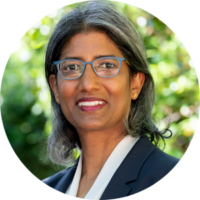 We honor Dr. Ruanne Barnabas for her extraordinary contributions to global health and her early-career achievements. As chief of the Division of Infectious Diseases at Massachusetts General Hospital, and a professor at Harvard Medical School, her research has had a profound impact on public health policy, particularly in the areas of HIV treatment and prevention, HPV vaccination and global health interventions. Dr. Barnabas has led groundbreaking studies, including the KEN-SHE trial, which demonstrated the efficacy of a single-dose HPV vaccine, influencing global vaccine policy. Her dedication to health equity is also evident in her volunteer work and mentoring of future scientists. With numerous prestigious awards and global recognition, Dr. Barnabas exemplifies leadership, innovation and collaboration.
We honor Dr. Ruanne Barnabas for her extraordinary contributions to global health and her early-career achievements. As chief of the Division of Infectious Diseases at Massachusetts General Hospital, and a professor at Harvard Medical School, her research has had a profound impact on public health policy, particularly in the areas of HIV treatment and prevention, HPV vaccination and global health interventions. Dr. Barnabas has led groundbreaking studies, including the KEN-SHE trial, which demonstrated the efficacy of a single-dose HPV vaccine, influencing global vaccine policy. Her dedication to health equity is also evident in her volunteer work and mentoring of future scientists. With numerous prestigious awards and global recognition, Dr. Barnabas exemplifies leadership, innovation and collaboration.